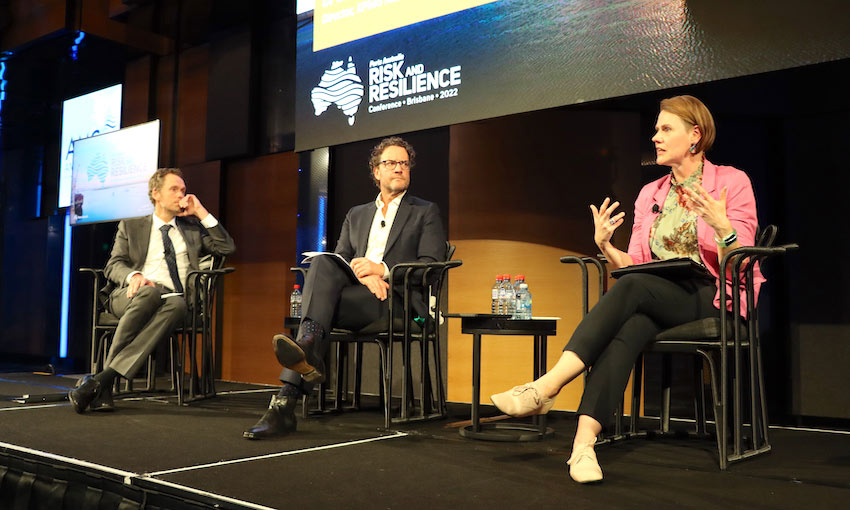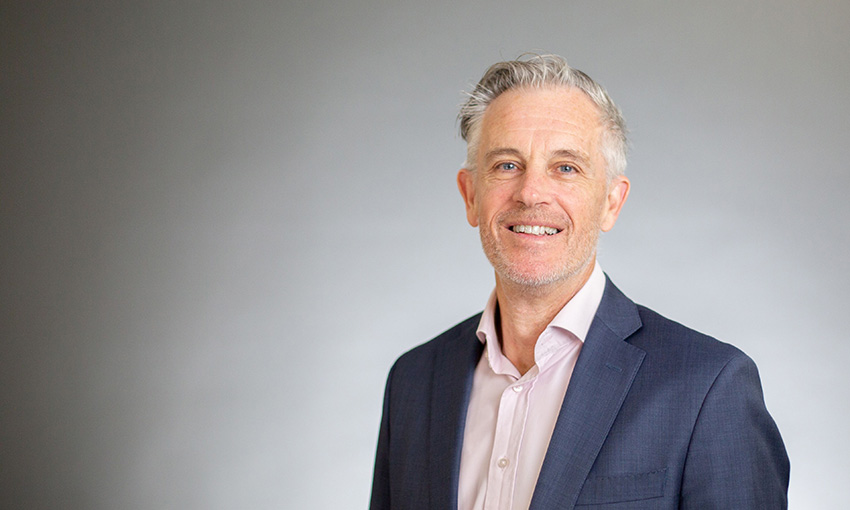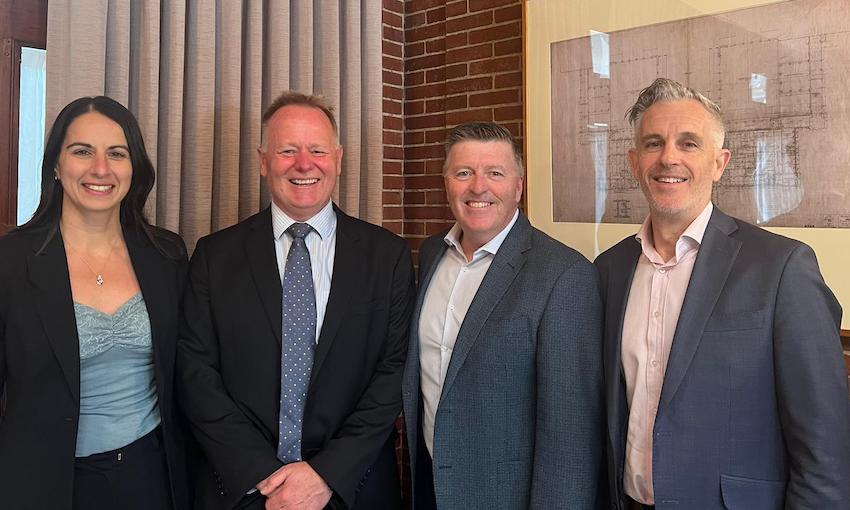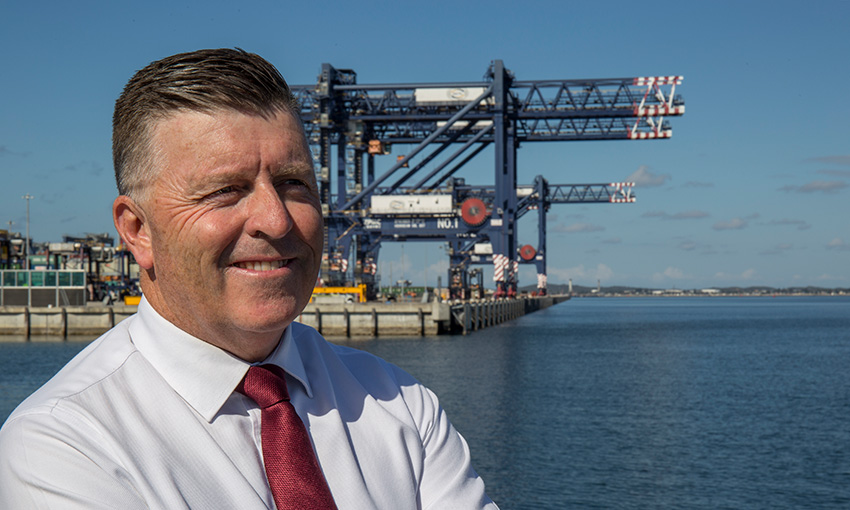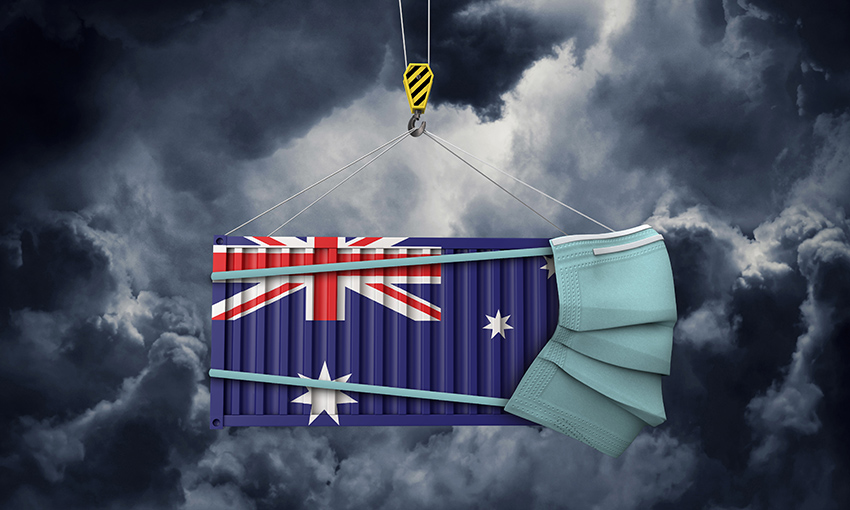DISCUSSIONS at first full day of events at the Ports Australia Biennial Conference positioned Australia’s ports sector within the international maritime landscape and encouraged broader thinking around risk in the industry.
The global focus was reflected in the line-up of speakers for the day; some international delegates flew in from maritime nations to join the event and several keynote and panel presentations were delivered live from overseas.
In his opening address, Ports Australia CEO Mike Gallacher said the Australian ports community had come together at an important point in history.
“We live in a nation that has awoken to the fact that we are a maritime nation,” Mr Gallacher said.
“Two years ago, at the height of the pandemic, our sector witnessed supply chain challenges previously deemed unimaginable.”
Mr Gallacher highlighted the monumental efforts from all areas of the industry, from chief executives in the room to seafarers.
He also noted the shift toward sustainability taking place across Australia’s ports coming out of the pandemic, not because it was forced, but because “it’s just what we do”.
“Our ports all possess detailed roadmaps for their future … but we do not operate in isolation. We are merely one element along a supply chain, from construction through to consumer or manufacturer, we are the enabler where water and land intercept.”
Throughout the morning, delegates heard from International Association of Ports and Harbours technical director Antonis Michail; and from Maritime and Port Authority of Singapore assistant chief executive David Foo.
And, TasPorts CEO Anthony Donald moderated a risk, resilience and recovery panel discussion between TT Club Asia Pacific regional director Phillip Emmanuel, Resilience NSW Commissioner Shane Fitzsimmons and Australian Chamber of Commerce and Industry economics, employment and skills director Jenny Lambert.
Australian Border Force Commissioner Michael Outram delivered a presentation emphasising the role of the border in building national resilience, and the ports sector’s role in securing it.
Australian Maritime Safety Authority CEO Mick Kinley then unpacked an array of challenges causing havoc in the container trade.
“Climate change is doing alarming things … in China, where they’ve had a drought that has broken all records and a heat wave that’s broken all records, shipping contracts are looking at calling Force Majeure because it’s too hot to be building ships in that temperature,” he said.
“Large containerships, more severe weather events are not only going to make it tricky for containerships to keep cargo on board … but how that’s going to impact on our current emergency towing capacity is going to play out in the future.”
With Pacific Islands nations represented at the conference, the Pacific Forum in the afternoon was received by many as a highlight.
The forum, moderated by Mr Gallacher, featured PNG Ports Corporation CEO Fego Kiniafa, Ports of Auckland CEO Roger Gray, and Michael Minns of the Department of Home Affairs.
Discussions revolved around shared responsibility and experience in the Pacific region.
Sessions concluded with a discussion on the emerging economic and geopolitical landscape, moderated by Port of Melbourne CEO Saul Cannon and featuring chief economist David Wood and Dr Merriden Varrall, director of KPMG Australia Geopolitics Hub.
And in the evening, guests arrived at Brisbane City Hall for a lavish gala dinner sponsored by Port of Brisbane.
A highlight of the night was a captivating conversation between the heroic tug masters who prevented Portland Bay from grounding in July.

